Russian airliner crash in Egypt: Plane broke up 'in the air'
Investigators recover black box flight recorders

Egyptian soldiers stand guard next to the luggage and belongings of passengers of the A321 Russian airliner at the site of the crash in Wadi al-Zolomat, a mountainous area in Egypt's Sinai Peninsula. (AFP)
A Russian airliner that crashed in Egypt broke up "in the air", an investigator said Sunday, as the bodies of many of the 224 people killed on board were flown home.
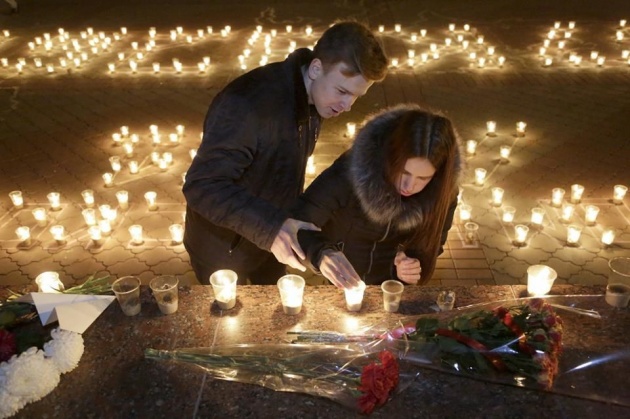
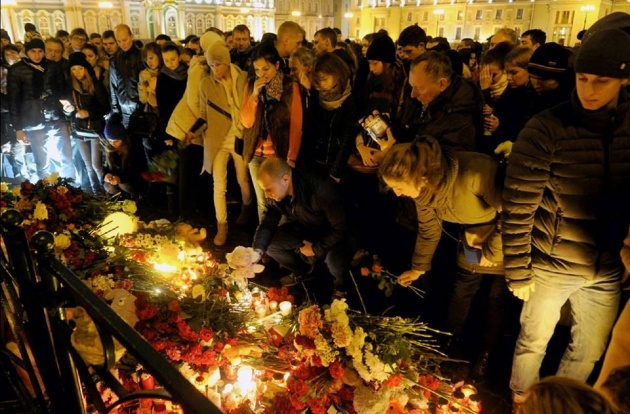
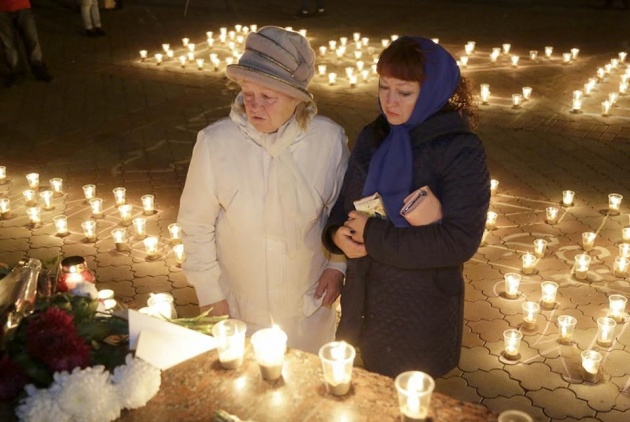
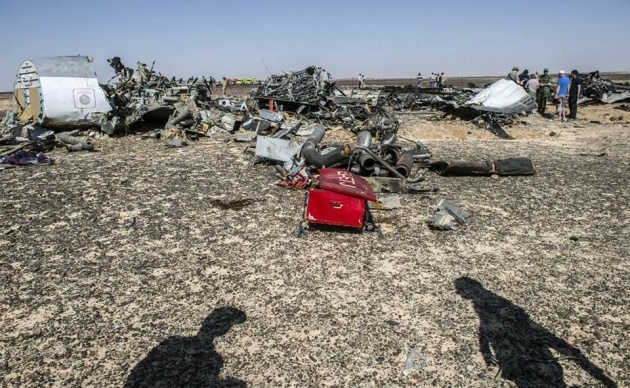
President Abdel Fattah Al Sisi urged patience to determine the cause of Saturday's crash, after the Daesh group (IS) claimed it brought down the A-321 in Egypt's restive Sinai Peninsula.
"The disintegration happened in the air and the fragments are strewn over a large area," said Viktor Sorochenko, a senior official with Russia's Interstate Aviation Committee, quoted by the Russian news agency RIA-Novosti from Cairo.
Sorochenko, who is heading an international panel of experts, said it was "too early to draw conclusions" about what caused the flight from the Red Sea holiday resort of Sharm el-Sheikh to Saint Petersburg to crash.
Late on Sunday, a Russian plane carrying 162 bodies of those killed left Cairo for Saint Petersburg. Russian officials said it was expected to land at around 0200 GMT.
Investigators have recovered the "black box" flight recorders of the Airbus, which crashed on Saturday killing all those on board, and the Egyptian government said its contents were being analysed.
The head of an Irish mission that will join the Egypt-led probe into the disaster said the results from the recorders should be ready in a few days.
The crash site in the Wadi al-Zolomat area of North Sinai was littered with blackened aircraft parts Sunday as the smell of burnt metal lingered, an AFP correspondent said.
Soldiers guarded dozens of bags and suitcases belonging to passengers from flight KGL 9268 --- a tiny red jacket among the recovered items underlining the horror of the tragedy that killed 17 children.
 Officers involved in the search efforts said rescue crews had recovered 168 bodies so far, including one of a girl found eight kilometres (five miles) from the main wreckage.
Officers involved in the search efforts said rescue crews had recovered 168 bodies so far, including one of a girl found eight kilometres (five miles) from the main wreckage.
International investigation
Flags flew at half mast in Russia on Sunday and entertainment programmes on television were cancelled on a national day of mourning for the victims, most of them Russians ranging in age from 10 months to 77 years.
Cairo said there were 214 Russian and three Ukranian passengers on board, and seven crew members.
Thousands of Russians gathered in Saint Petersburg's Palace Square to observe a minute's silence and release doves and balloons to the darkening sky.
"It was impossible for me not to come," said Nika Kletskikh, 27, who lost a friend in the crash. "It's so awful to think that she's no longer there."
Both Cairo and Moscow have downplayed the claim from Egypt's Daesh branch that it brought down the aircraft flown by the airline Kogalymavia, operating under the name Metrojet.
International experts are now investigating other possible causes, and a Russian team including Sokolov and the emergencies minister, Vladimir Puchkov, have visited the scene in a remote part of the Sinai.
Two air accident investigators from France - Airbus's home country - and six experts from the aerospace giant are also taking part in the probe.
Jurgen Whyte, chief inspector with reland's Air Accident Investigation Unit (AAIU) who is leading the team, said readings from the black boxes due in the next few days would direct the investigation.
"Nothing can be said until we have access to the recorders, and luckily they have been recovered," he told AFP.
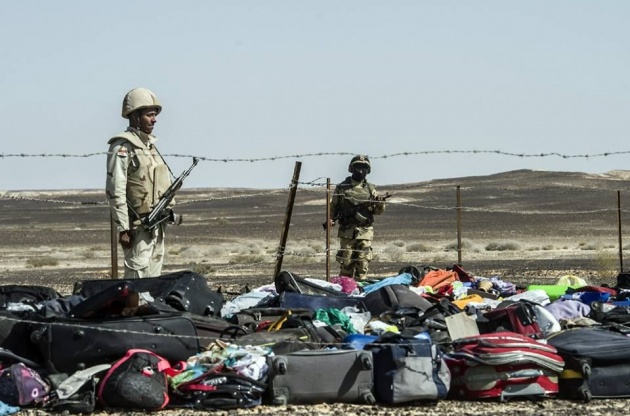
Plane passed safety review
On Sunday, the AAIU said it had given the A-321 a clean bill of health earlier this year after its annual review, which was carried out in Ireland as that is where the aircraft was registered.
Russia has a dismal air safety record, and while larger carriers have begun upgrading ageing fleets, the crash is likely to raise concerns about smaller airlines such as Kogalymavia.
On Sunday, Russia's transportation watchdog ordered Kogalymavia to perform a full check on its A-321s, although the airline denied this was a de facto grounding of its other six aircraft of the same model.
Experts have dismissed claims from an IS affiliate insurgency group in the Sinai claimed it brought down the aircraft in revenge for Russian air strikes against the jihadist group in Syria.
They argue the militants have neither the technology nor the expertise to take out a plane flying at 30,000 feet (9,000 metres), although Germany's Lufthansa, Emirates and Air France have all halted flights over Sinai until the reasons for the crash were known.
Experts say human or technical error more likely caused the crash - although they concede a surface-to-air missile could have struck the aircraft if it had been descending for some reason.
An Egyptian air traffic control official said the pilot told him in their last exchange that he had radio trouble, but Civil Aviation Minister Mohamed Hossam Kamal said communications had been "normal".
"There was nothing abnormal... and the pilot didn't ask to change the plane's route," he said.
The last major air crash in Egypt was in 2004, when a Flash Airlines Boeing 737 plunged into the Red Sea after taking off from Sharm El Sheikh, killing all 148 people on board.



